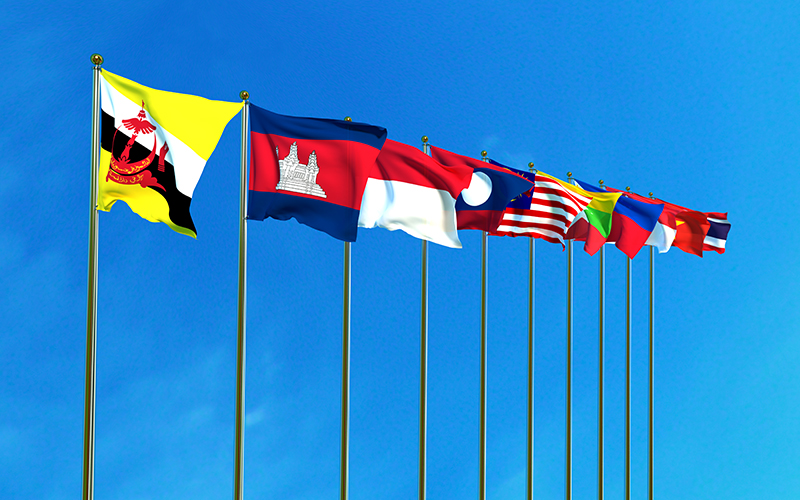Bite-Sized News Bits
Compilations of the latest news on 4IR and technological wave
ELSA Raises $22.5M for Expansion, Launches Voice-Based AI Tutor
ELSA, a language learning platform based in the US and Vietnam, has raised US$22.5 million in a series C round led by UOB Venture Management. The startup, whose name means English Language Speech Assistant, will use the money for global expansion and other improvements to the platform.
In addition, the company has launched ELSA AI Tutor, a voice-based tool designed to boost learners’ English skills.
Apple to Debut First Made-In-India iPhone 15
Apple is set to sell its first made-in-India iPhone on launch day. The iPhone 15, produced at southern Tamil Nadu’s Foxconn Technology factory, signifies a shift in practice, with Apple traditionally selling China-made devices. Despite potential minor delays, the move reflects India’s increased production capabilities and Apple’s diversification strategy amid Washington-Beijing trade tensions.
Indonesia-Based Hukumku Secures East Ventures Backing to Make Legal Aid More Accessible
Despite Indonesia’s efforts to establish a national legal aid programme over five years ago, many low-income individuals still struggle to access legal representation in the archipelago.
The existing system falls short of meeting the public’s demands for legal aid due to limited budget allocation and strict accreditation requirements for legal aid providers.
Hukumku, an Indonesian legal tech startup, aims to solve this problem by offering a platform that connects users with vetted lawyers, focusing on providing transparent and affordable legal aid.
The company has now raised an undisclosed sum in a new funding round led by East Ventures. It will use the capital to speed up the development of its products and marketing efforts as it gears up to launch its platform in November.
The platform, once released, will provide essential information about lawyers, including their profiles, practice licenses, areas of expertise, locations, and user ratings and reviews. It will also offer free educational content and seminars on legal topics and current legal cases to help users better understand legal terminology and processes.
The company was founded by Glorio Yulianto, Fritz Hutapea, and Michael Jagadpramana. Yulianto founded the advertising platform Ubiklan, while Hutapea is a legal consultant in Indonesia. Meanwhile, Jagadpramana has worked as a director at the animation firm Samville Studio and was a chief commercial officer at the design software company Pandatech.
Delivery Robots and Smart Glasses: Innovations Free Up Nursing Home Staff to Provide Better Care
From robots that deliver bedsheets to smart glasses that allow nurses to transmit what they see, nursing homes in Singapore are investing in new technology.
NTUC Health, for instance, is using self-guiding robots to deliver linen and meals to wards in its nursing homes.
At its Chai Chee branch, the autonomous guided vehicle resembles a trolley and is capable of carrying loads of up to 180 kg, helping the home save more than 4,000 person-hours last year.
The system can independently move around the nursing home, using either a scheduled timing or when activated by staff for deliveries.
Before the robot, nurses had to carry over 70 bags of dirty and clean linen to over seven levels of wards daily. Aside from being time-consuming, it was also physically demanding work.
Indonesia, Singapore Strengthen Cooperation in Digital Economy
Home Affairs Minister Tito Karnavian highlighted state management success stories in Singapore for Indonesia to emulate, as conveyed at Singapore's Nanyang Technological University's (NTU's) first regional conference and reunion, Jakarta, with over 200 alum attendees.
"Indonesia can emulate how to use technology based on research from universities for many aspects of administrative processes and services for its citizens," Karnavian noted in a written statement from the Indonesian Embassy in Singapore received in Jakarta on Tuesday.
"Indonesia has over two thousand startups, two decacorns, and more than seven unicorns. Startups with the highest growth are in the on-demand services, financial technology, and e-commerce sectors," Suryopratomo remarked.
Suryo, familiarly known as Tommy, remarked that Indonesia's increasingly digital economy would grow by 52% in 2021, with a total of US$53 billion (around Rp807 trillion), and is projected to reach over US$124 billion (around Rp1.8 quadrillion) by the end of 2025.
In 2022, a research consortium was agreed between NTU and ITB, UI, UGM, and ITS, with the name INSPIRASI (Indonesia-NTU Singapore Institute of Research for Sustainability and Innovation), which focuses on sustainable development on the three main pillars of renewable energy, circular economy, and smart cities.
Asean Bloc Starts Work on Digital Economy Framework
The Association of South East Asian Nations – the ten-country trade bloc that houses over 600 million people and accounts for around 6.5% of global economic activity – has started work on a Digital Economy Framework Agreement (DEFA) it hopes will result in seamless trade and data flows.
ASEAN's members include Indonesia, Singapore, the Philippines, and Vietnam. The bloc represents the world's fifth-largest economy and some of its brightest growth prospects.
The decision to develop the DEFA was made at Tuesday's summit of ASEAN leaders, which produced a Leaders' Statement that signalled agreement to develop the Framework. It set 2025 as the deadline to get it done.
The Economic Research Institute for ASEAN and East Asia (ERIA) considered the DEFA earlier in 2023 and described it as having the potential to "deepen existing digital economy cooperation and ensure the interoperability of digital economy systems" across the bloc.
Malaysia Can Roar as “Digital Tiger” of Asia: Fahmi Fadzil
Malaysia can be Asia's "Digital Tiger" once it achieves vital components to boost its digital strength and economy. Communications and Digital Minister Fahmi Fadzil said the government must focus on ensuring the last three per cent of urban and rural areas have connectivity accessible.
More private sector participation, including public-private partnerships in cybersecurity initiatives, can help lay out plans to elevate the standards of cyber protection and personal data security.
"The people can enjoy the benefits of these efforts, which we call success. Eventually, this could portray Malaysia as the Digital Tiger of Asia.
Many companies are considering expanding their operations in Malaysia, including increasing their workforce. This is very positive for the digital economic ecosystem in Malaysia," he said.
Fahmi said these efforts will indirectly position Malaysia as a hub for companies to grow in the Southeast Asian and broader Asian region.






